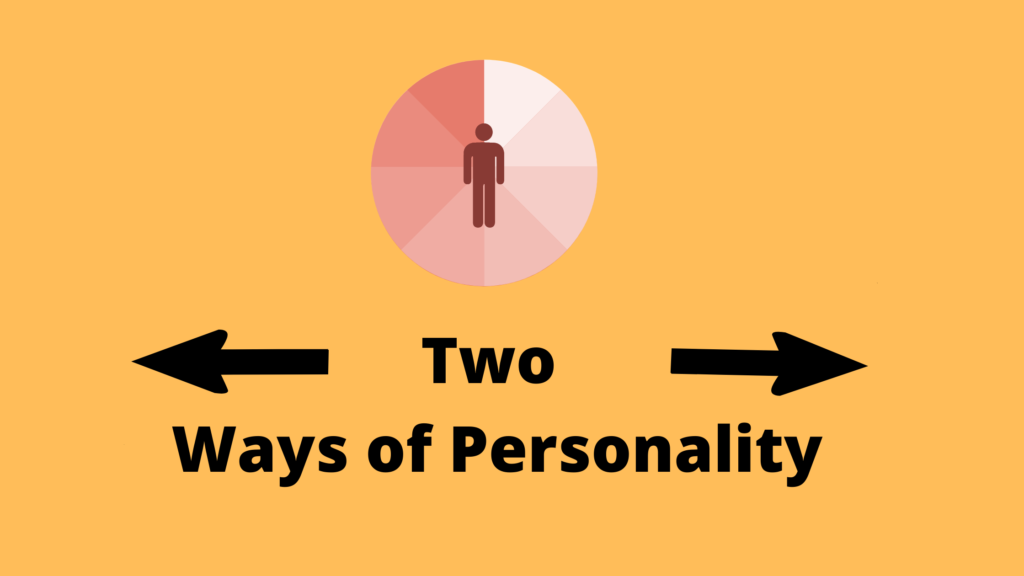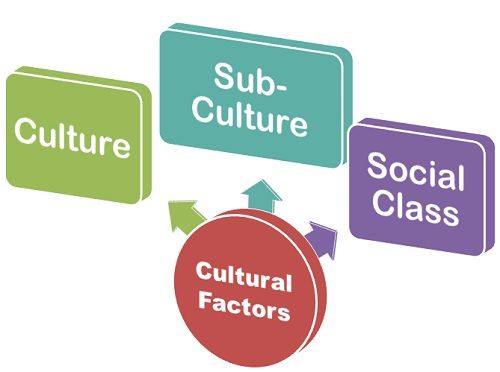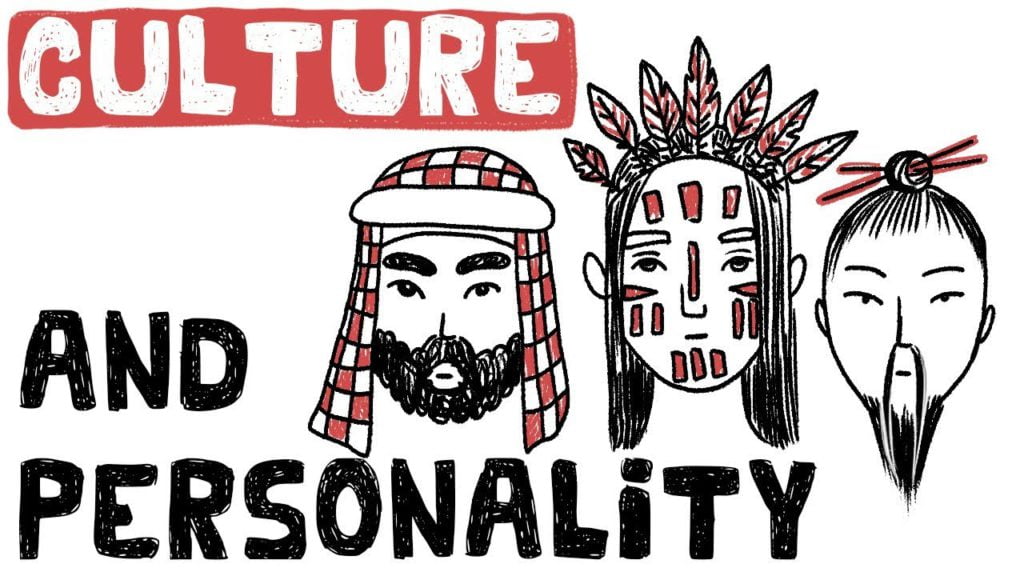The word ‘personality’ originates from a Latin word that translates to ‘persona’, or ‘a mask’.
K Young asserts that ‘personality’ is a patterned collection of traits that include beliefs, habits, and attitudes about oneself. Since these beliefs, habits, traits and attitudes are organized externally into roles and positions, their relationships to each other and motivation, goals, and other aspects impact self-worth, thus further defining one’s ‘personality’.
According to Robert E. Park and Ernest W. Burgess, personality is defined as ‘the mixture and array of traits that define the character of a person in the context of the entire.

What do experts have to say about Personality?
MacIver explains ‘personality’ as we have come to know it, as ‘all that a person has been through’. Davis says that personality is ‘a psychological phenomenon that isn’t organic nor social; however, it is an amalgamation of both’.
Anderson and Parker say that the personality of a person is the total of their habits, attitudes, and characteristics due to socialization. It is a characteristic of our interactions with others. Munn stated that ‘personality is the single most distinct mix of an individual’s personality, behaviour, attitudes, and abilities, as well as the acquired dispositions and characteristics of an individual.’
Also, read this article on Podium Blog on the various ways in which a parent can boost their child’s personality.
Lawrence A. Pewin has defined the term “personality” as follows: “Personality is one of the characteristics of the dynamic, structural nature of the person or group that are manifested in their distinct responses to different circumstances.”
Two Main Determinants of Personality
The biological approach to personality is not sufficient, as it only considers biophysical characteristics. Personality is a unique style that each individual has. This style is determined based on the organization of mental patterns, complexes, and emotions, as well as sentiments. A similar thought-process article on Emotions and Emotional Intelligence is very interesting. Click here to read.

Psychological approaches allow us to understand personality growth and disorganization. Sociological approaches consider personality as a function of the role of the individual within the group. This is done by considering our perception of our place in the group. Our personality is shaped by what others think about us.
Personality is the sum of all thoughts, beliefs, and values of an individual that define our position in the world. Also, it forms our character. Participation in group life is a key factor in acquiring personality. Humans learn symbolic skills and behaviour systems as group members. It is important in determining our ideas, attitudes, and social values.
These are the ideas, values, and attitudes that an individual holds. A person’s personality is a reflection of our inner world. It is the result of the interaction processes that establish standards of ethical judgment, belief, and conduct in social groups.
Types of Personalities
There have been attempts to classify personalities into different types. Hippocrates, a Greek physician, divided human beings into four categories. These categories are sanguine, choleric, melancholic and phlegmatic.
Carl Gustav Jung (a Swiss psychoanalyst) distinguished between two types: the introvert and the extrovert. The introvert tends to be preoccupied with themself, while the extrovert is focused on things beyond themself.

These two types are only two of the many. There is also a third: The ambiverts. They can be neither one nor the other, but they alternate between them. A majority of people are ambiverts. Ernest Kretchmer, the German psychiatrist, stated that an extrovert personality tends to be tall and slim. He called the first type “pyknic” and the second “leptosome”.
Let’s get into more about the Determinants of personality
What determines your personality? Do you have a personality that was inherited by your family? Or is it something that evolved as you went through numerous psychological shifts and experiences that changed your life?
Psychologists say that our personality is the result of four main determinants,
- Physical (Biological/Hereditary)
- Social (the community you are into and your role in the community)
- Psychological (your behaviour, emotions, and inner thought patterns)
- Intellectual (your values and beliefs).
These factors that determine your personality contain a range of contextual, environmental, and cultural elements that you could encounter daily throughout your life. We will further explore the meaning of character, forms as well as its determinants, traits such as nature, perception, and much more!
Major Different Types of Determinants of personality
You can divide the determinants of personality into four parts
- Physical environment Factors
- Heredity Factors
- Culture Factors
- Particular experiences Factors
Physical Environment Factors
We have discussed the effect of physical surroundings on culture. We also noted that the geographical environment can influence cultural differences. Why do the people of the Eskimos have a different culture from the Indians?? It is because they have a geographical environment distinct from that of the latter. Man develops opinions and ideas based on the physical environment that he lives in.
In the sense that physical surroundings affect the development of culture and cultural development determines character and personality. Also, the connection between environment and personality becomes apparent. Aristotle claimed that people living in Northern Europe were owing to the cold climate, which was full of life but lacking in intelligence and ability. The people of Asia on the other hand, are smart and innovative, yet lack spirit and are consequently slaves.

Montesquieu during the 18th century believed that the courage of those blessed by cold weather can allow them to keep their freedoms. The intense heat can inspire courage, while cold can cause a certain amount of vigour of mind and body. When temperatures are high, it means that there is a lack of motivation to work. So civilizations have developed with temperatures that are at or near the optimal.
Environmental Factors
The inhabitants who live in mountains and deserts tend to be strong, tough, and powerful. Huntington’s analysis of the impact of environment and physical conditions on man’s attitude and mental makeup is a thorough study. They establish the limits that personality development can occur.
The majority of types of personality can be present in every society. In reality, civilizations have sprung up in areas with a wide range of climates and topography. Christianity does not have a climate belt.
Monogamy occurs in the high elevations and flatlands in tropical climates and arctic conditions. Men’s attitudes and opinions change, even when there is no geographical change. The advocates of geographic determinism simplify the human persona and their theories can depend only upon careful examination.

Personality and Heredity Factor
The genetics of heredity is another aspect that influences the character of a person. A few of the traits that are common to man’s personality mean to be due to common genetics. Each human being inherits the same basic set of biological requirements and capabilities. The common requirements and capacities account for the similarities we share in our personalities. Man’s origins stem from combining female(egg) and male germ cells(Sperm) to form a single cell that creates during the time of conception.
He is a lot like his parents’ physical appearance and intelligence. They determine whether a person is strong or weak and energetic, or lazy smart or inept and courageous, cowardly or brave.
How does Physique acts as Determinant of Personality?
A person with a healthy physique and good health generally has a charming persona. A person with bad health, insufficient body, and unattractive physical characteristics develop an inferiority complex. You can monitor his development. Society is not happy with him. For society, he might become a criminal, dacoit, or drunk. It is also possible that he will be a leader or even a genius, as Socrates or Napoleon. In the same way, the glandular and nervous systems can alter the character of a person.
The nervous system is responsible for the ability and intelligence of an individual. The hormones influence the development of personality. In excess or insufficient amounts of hormones can be harmful. Certain men are too patient or over-zealous, hyperactive, and exuberant, while others are lazy and inactive. They are also weak. This could be due to the release of higher levels of hormones in the first instance and less in the latter. To be a normal human being, there should be a healthy production of hormones.
One can influence the influence of genetics on personality in a different way, i.e., indirectly. If the society of boys favors slim girls as their companions, these girls will attract the attention of the boys and have more opportunities to develop their personalities. In the words of Allport and Gordon, W., every characteristic of a person is free of influence from hereditary origins.
Human Character
However, heredity doesn’t alter the human character without assistance. ” For now, we can only conclude that there are genes that are responsible for normal personality traits, similar to the genes that govern different aspects of human makeup and function. If in the same family and the same environment, we see significant variations in personality traits, then we can attribute them, at the very least, to different genes.
It is also possible to speculate that some of the familial similarities influence the personality genetically. But we’re far from identifying particular genes that define personality and assessing their impact or making predictions about how the character of any given child will be based on the foundation of the information we have about their parents. ” But according to a report in the news (Times of India, January 3, 1996), scientists have discovered an impulsivity gene that can affect as well as excitability and extravagantness.
In essence, heredity should not be a fixed and precise course for any person’s personality. In the end, what one inherits is the possibilities for a range of people. The exact way in which one will “jell” is dependent on the circumstances. Ogburn and Nimkoff write, “It is a mistake to believe, as many endocrine fans claim, that the glands are responsible for the entirety of a person’s personality. This includes many things, such as one’s opinions, one’s behavior, and skills. ” It is also possible to over-or under-activate certain types of hormones by injecting specific kinds of hormones, which can alter the personality of a person. Also, one could argue that the available evidence is not in support of the dogmatic notion that personality is transmitted through genes.
Other Traits
Certain traits appear to be more affected by genes than other traits. Skills for manual handling, intelligence, and the ability to discriminate between sensory and physical signals are just a few of the traits that appear to be more developed in certain families than in others. However, other characteristics like one’s beliefs, loyalties, attitudes, and habits are in the majority due to training and knowledge.
It is only the material from which experiences mold the persona. Experience will determine how one is using these materials. A person may be active due to hereditary reasons, but whether or not he is working in his way. For the sake of other people is determined by the training he has received.
If he is into earning money or engaging in scholarly activities, it is also contingent on the environment he grew up in. If the personality of a person is a direct result of traits or tendencies that came from the past, then all kids and children from the same family and the same surroundings are likely to have similar personalities, or at the very least, personality traits that are alike.
Research
The study has revealed that when they are just three or four years, they exhibit distinct personality traits. The newborn human being is, in the expression that Koenig, Hopper, and Gross the three, a “candidate of character.” The result is thus, evident that the individual’s genes by themselves aren’t enough to know his character qualities and beliefs.

Culture Factor
There is no doubt that culture is the primary factor in determining the kind of personality that is prevalent in a specific group. Personalities are the subjective component of the culture. They see culture and personality as two different sides of the same coin.
Spiro has said, “The formation of personality and acquisition of culture are not two distinct processes, but are the same process of learning.” It is a distinct aspect of culture, whereas culture is a part of the personality.” Every culture has its unique type or a variety of personalities.
In 1937, Anthropologist Ralph Linton and the psychoanalyst Abram Kardinar initiated an exploration of the relation between personality and culture through the examination of minute accounts of various ancient societies as well as a current American village. Their research has shown that each culture is prone to form and gets support from the “basic personality kind.” A particular cultural context sets its individuals apart from the other humans working in various cultural settings.
What Experts Say?
According to Frank” culture is a major influence on an individual who develops his personality on the ideas, concepts, and values that he has received into his life through the collective. life. ” Cultural influences are the foundation upon the person’s life. Traditions, customs as well as the customs, beliefs institutions, morals, and social norms of a particular group influence the persona of its members. From the moment the baby takes birth, how you treat the baby shapes his character. Every culture exerts a variety of general influences on children who grow up in it.
According to Frank” culture is a major influence on an individual who develops his personality on the ideas, concepts, and values that he has received into his life through the collective. life. ” Cultural influences are the foundation upon the person’s life. Ogburn as we have mentioned above has divided his culture into “material” in addition to “non-material.” He believes that both the material and non-material culture has an impact on the personality. In terms of the termer, Ogburn provides instances of the impact of plumbing in the development of attitudes and habits that are favorable to cleanliness as well as the connection of time-pieces and timekeeping.

More Information
For instance, the American Indians who have no clocks or watches in their society do not have any idea of maintaining appointments in any precise way., customs as well as the customs, beliefs institutions, morals, and social norms of a particular group influence the persona of its members. From the moment the baby takes birth, how you treat the baby shapes his character. Every culture exerts a variety of general influences on children who grow up in it.
He claims that they possess no concept of time. The character associated with the American Indian differs from that of a white person regarding punctuality, and this is due to cultural differences. In addition, certain cultures appreciate cleanliness, as evidenced by the phrase: “Cleanliness is next to godliness.” This quality of cleanliness is largely happening through the modern technology of plumbing and other innovations that you can discover within it.
More about Cultural Factor
The Eskimos are filthy because they must hang the snow bag on their backs to melt it for water. Someone who is about to turn on a tap of water is naturally cleaner as an Eskimo. The cleanliness of a person is not an issue of genetics but rather of culture. Language provides an interesting illustration of the connection between non-material culture and personality. We are aware that among the major distinctions between humans and animals is the fact that man is the only animal to possess speech.

One can learn the language within the context of society. Individuals who are not able to speak show a distorted personality. Because language is the primary method by which an individual gets his information and beliefs, it is the main source of the development of personality. Furthermore, the way we speak becomes an aspect of our personality. The slurred voice of a woodcutter differs from the quiet tones of the man.
The short, sharp, and guttural language of the German is a part of his personality, and so does his fluid, flowing, the voluble language of the Spaniard. The movements of hands and shoulders when speaking are an integral part of the personalities of Italians as well as Jews. The Jews make use of their gestures to convey accents only, whereas Italians depend on gestures to convey a portion of the message.
Another example of the impact of culture on personality is how males and females behave. In the early days, when farming was the primary enterprise, women typically did not have jobs outside of the home, which meant that they depended on their husbands and fathers. The need to obey was a natural outcome of these conditions. However, today, many women work outside their homes and earn wages.
Examples
Women enjoy the same rights as men and aren’t as dependent on men as women were back in the day. A sense of independence rather than the need to obey has now become a characteristic of female personalities. With the increasing recognition of the significance of culture in character, social scientists have attempted to determine the characteristics of particular cultures. It gives a distinct stamp on the members of the group. Ruth Benedict analyzed the cultures of three tribes that were primitive. He discovered that the cultures could be classified into two main varieties: The Apollonian or the Dionysian.
A. One can characterize the Apollonian type by control, even temperances moderateness and co-operation and co-operativeness, while it is the Dionysian type is characterized by emotionalism, exuberance, the pursuit of status, competitiveness, and individualism. Sources believe that the Zuni society is classified Apollonian as Apollonian, and it is classified as Apollonian, and the Kwakiutl and Dobuans are classified as Dionysian.
The persona of Hindus in India is very different from the character of Englishmen. What is the reason? The answer is “a different Hindu cultural outlook’. The Hindu culture does not emphasize things that are material or worldly instead, it is more about matters of the spiritual and spiritual. Within every Hindu family, there is a religious atmosphere. The mother rises earlier in the day, then takes a bath, and spends the entire day in meditation. When the children wake up, they kiss to the parents’ feet and kneel before the gods of the family or goddesses. The Hindu child from the moment of his birth develops the characteristics of a philosophical and religious personality that is based around his or her “inner existence.”
Illustrations
From the many illustrations mentioned in the past, it’s evident that culture is a major influencer of personality. Individual ideas and behavior are mostly the results of cultural influences. There is a huge divergence of opinions between the Hindu person who is a religious fanatic in contrast to people like the Russian Communist who completely opposes the religion.
However, it cannot be a conclusion that cultural diversity is a gigantic die that defines all those who are part of it with an identical structure. Everyone in the same culture isn’t part of the same group. Personality traits vary within each society. Some people in any kind of culture are more aggressive than others, while some are more gentle, respectful, and competitive
Personality isn’t completely dependent on culture, even when every personality is subject to its influence. It’s just one factor in a multitude of. Ruth Benedict writes, “No anthropologist who has a history of experiences from other cultures have ever believed that people were mechanical automatons who carried the laws of their societies.
The world’s cultures have not yet been able to eliminate the different personalities of the people who comprise it. It’s always a give and takes situation.

Experiential Factors
One can determine the character of a person by another aspect, which is the specific and distinctive experiences. There are two kinds of experiences. The first is those that result from constant interaction with a group of people. While the other is those that occur abruptly and are not likely to repeat. The kind of people who interact with the child every day can have a significant impact on his character. Parents’ personalities do more to influence a child’s character.
If parents are caring and accepting of boys’ games, are interested in sports, and are keen to support their child’s interests, the child will experience distinct experiences and will have an impact on his character unlike when parents are rude and quick-tempered. The home environment is the place where one develops the personality style that will determine the character of the individual throughout his entire life.
Social rituals, which range from table manners to be able to get along with people around you, are taught to children by their parents. The child learns the language spoken by his parents. Issues with emotional and psychological changes arise. These are dealt with according to the cultural values and norms in the home. The structure of the family tends to bring the child into contact with his peers as well as his teachers. The playmates he plays with and the things his teachers say will influence the development of his personality.
Influences from groups are significantly higher in the early childhood years. This is where the interactions of the child’s father, mother, and siblings influence the way he organizes his emotions. It drives feelings that are the most underlying and insidious aspects of his personality.
Let’s Get to Know More
A certain level of maturation is necessary before a child can comprehend the expectations of an adult. The personality pattern that develops during this time is very difficult to alter. What makes a person an authority figure, a coward, or an imitation? How much is he viewed as superior or inferior, or whether he is selfless or egoistic? It is based on the kind of interactions a person has with others. The way he interacts with others shapes his character.
When he is away from his group, the child may be deranged or develop a sexist attitude. As a child develops, the child develops a desire for interaction and a desire for recognition. To the organic needs of a child are added “sociogenic” needs, which are a major motivator in the personality. The process by which self-concept develops in a child is a fascinating study. The self does not begin at the beginning. It begins to emerge as the child is introduced to some aspect of the world.
He finds his belongings and feels proud of his possessions. He discovers that certain parts belong to him. Because he knows his paternal name, he begins to differentiate himself from other people. The praise and criticism that he gets from other people account for a large part of his behavior. Self-development is the basis for the development of the conscience and ego.
Experiences Explain Everything
The self-conception we have is often determined by the opinions of others. This doesn’t, however, necessarily mean that we consider every opinion about our actions equally. We place importance on the views of people. For one reason or different reasons, we believe one reason to be more significant than the others.
Our parents are generally more significant than the rest because they are close to us. They have the most influence over us than other people, especially in our early years. In the end, our childhood experiences are crucial in shaping our character. It is during our early years where the foundations of personality are set.
Why do children raised in the same family differ in their personalities even though they’ve experienced the same things? The reason is that they’ve not experienced identical experiences. Certain experiences are comparable, while other experiences are distinct. Each child has a distinct family unit.
Overall Factors
One is the one born and is the sole child until the birth of the next. Parents don’t treat their children the same way. The children are part of diverse playgroups, are taught by different teachers, and have diverse situations. They don’t share the same experiences and incidents. Each individual’s story is unique because no one can duplicate it perfectly. Therefore, every child is born with distinct experiences that can be like those no other child has. Thus, they develop a unique persona.
Sometimes, a shocking event leaves an indelible impression on the persona of the individual. A child might be terrified by the sight of a bloody accident, and a girl’s encounter with a rapist can cause her to be a victim of sexual inadjustment.
The words of a book might not call a person to leave the world and turn to God. If a person meets an accident that cripples or makes him weaker, he begins to contemplate feelings of being inadequate. People believe that Lord Buddha has come to abstinence through the spectacle of the funeral procession. This is how experiences define one’s character.
A Course in Personality Development – Download
Conclusion
However, one should observe that the developed personality will determine, in part, how experiences affect the personality that has been acquired. For instance, a child who’s active, outgoing, and athletic will find their parents as role models for good behavior. It would enhance the already evident character characteristics. If the child is introverted and shy, he might find the parents’ behavior unpleasant many times.
It could also happen that your personality is a result of social contexts. It has been demonstrated by social scientists that people can show sincerity in one setting but not the other. This is the same for other personality traits. Personality traits are specific responses to specific circumstances rather than general patterns. It’s a dynamic, unified system that has the potential for creative growth.
The physical environment, genetics, and specific experiences are the four main factors behind personality development, formation, and preservation. Beyond the combined impact of these elements, the impact of each one on personality is contingent upon the personality characteristic. Apart from that, the process that is involved, and possibly depends on the person involved.
Last Words
Certain personal characteristics could be more important due to hereditary or genetic factors. But for other people, Environmental factors (cultural or financial) are more significant. Additionally, for any character, the proportion of one factor or another will differ from person to person.
There is also no method yet to quantify the effects of any aspect. Other than that, to determine how they interact to give a specific outcome. The behavior of a young criminal is affected by hereditary factors and the circumstances of his life at home. The amount that is affected by each one of the factors cannot be determined in precise terms.
What are the factors that affects personality?
Four Main factors
1. Physical environment Factors
2. Heredity Factors
3. Culture Factors
4. Particular experiences Factors
What means personality development?
Personality is the sum of all thoughts, beliefs, and values of an individual that define his position in the world and form a fundamental element of his character. Participation in group life is a key factor in acquiring personality.
How can I develop my personality?
Be a better listener. …
Read more and expand your interests. …
Be a good conversationalist. …
Have an Opinion. …
Meet New People. etc.
Share with your friends





